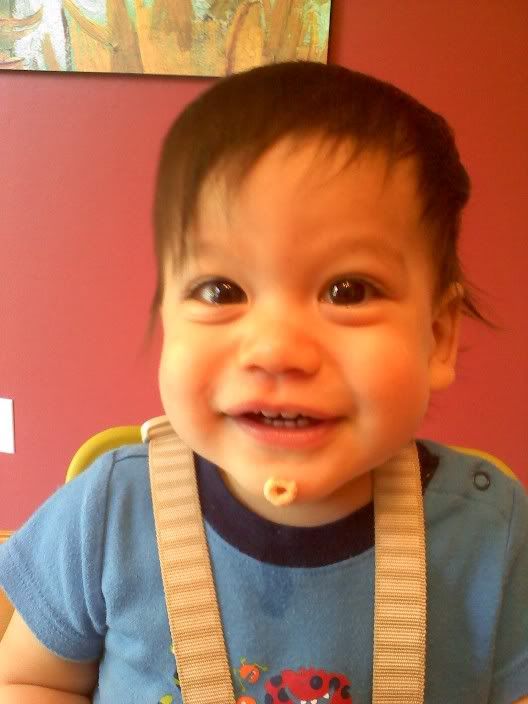I recently wrote a post about breastfeeding for the blog published by the center I work at. I wanted to share it here also:
Nourishing our babies
I’m always surprised when people ask when I’ll stop breastfeeding, usually assuming I’ll be done by my baby’s first birthday. Many people I encounter think breastfeeding is a one year commitment at best; while others think it’s only important for a few weeks or months, and others don’t see value in breastfeeding at all. Often when I mention that I don’t have a planned date to stop breastfeeding, I receive strange looks or misguided comments.
My son is now 10 months old and I’ve been breastfeeding him since minutes after birth. I enjoy breastfeeding him and believe it is a key factor in developing that special bond between mother and baby. It gives us a chance to reconnect during the day now that he’s so busy exploring the world. It’s also easy and cheap! I don’t have to remember to bring milk when we leave the house. I don’t have to worry about clean bottles or the temperature of the milk. I have the perfect food at the perfect temperature always ready to go.
Breast milk conveys huge benefits to the nursing baby and mother. Studies have shown that breastfed babies are sick less often, have less allergies, have higher cognitive function later in life (as measured by IQ and grades in school), and lower rates of obesity than babies who are formula fed. Breastfeeding also benefits the mother by assisting with post baby weight loss, reducing the risk of many forms of cancer, and protecting against osteoporosis.
Current recommendations are for exclusive breastfeeding through a baby’s first 6 months (AAP 2005, WHO 2002). This means no other foods or beverages are offered. Complimentary foods are offered once the baby is 6 months old and breastfeeding is continued at the same rate as before. Throughout the first year, the majority of calories and nutrients should come from breast milk.
The need for breast milk doesn’t end after infancy. According to the American Academy of Family Physicians, children weaned before two years of age are at increased risk of illness (AAFP 2001). The American Academy of Pediatrics notes that breastfeeding beyond one year “confers significant health and developmental benefits for the child and the mother” and that “there is no upper limit to the duration of breastfeeding and no evidence of psychological or developmental harm from breastfeeding into the third year of life or longer" (AAP 2005).
How do Americans measure up to these recommendations? According to the CDC National Immunization Survey, 74% of women who birthed babies in 2006 initiated breastfeeding, 43% were breastfeeding at 6 months, and 23% were still breastfeeding at 12 months of age. Of babies born in 2006, 33% were exclusively breastfed for 3 months and 14% were exclusively breastfed through 6 months.
I encourage all mothers to breastfeed their babies and seek out help if difficulties arise. Certified lactation consultants are available to assist with feeding problems at your local hospital, La Leche League holds area meetings and has volunteers available for consult, and KellyMom website is a wonderful evidence-based breastfeeding resource. All of society can work towards increasing breastfeeding rates, and the health of future generations, by showing more acceptance and understanding of the natural act of breastfeeding.
Resources:
AAP Breastfeeding Position Statement: http://aappolicy.aappublications.org/cgi/content/full/pediatrics;115/2/496
WHO Breastfeeding Position Statement: http://www.who.int/nutrition/topics/infantfeeding_recommendation/en/index.html
AAFP Breastfeeding Position Statement: http://www.aafp.org/online/en/home/policy/policies/b/breastfeedingpolicy.html
CDC National Immunization Survey: http://www.cdc.gov/breastfeeding/data/NIS_data/index.htm
La Leche League: http://www.llli.org/
KellyMom: http://www.kellymom.com/index.html



